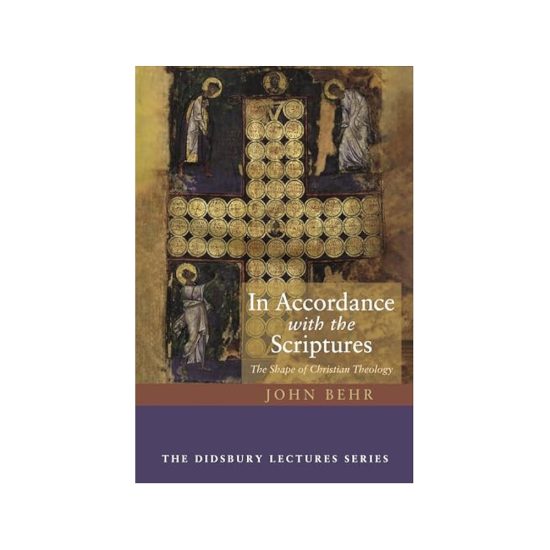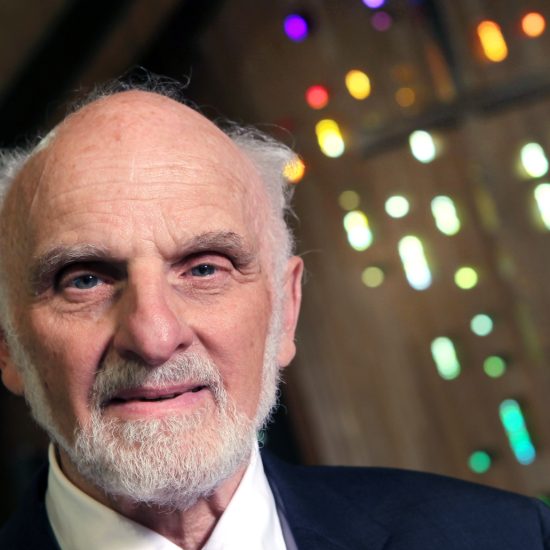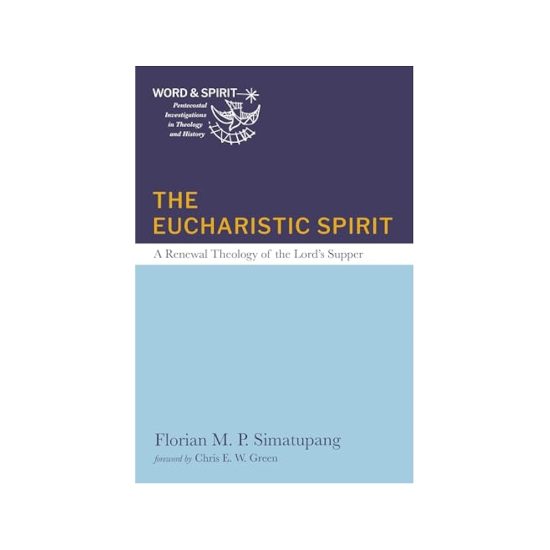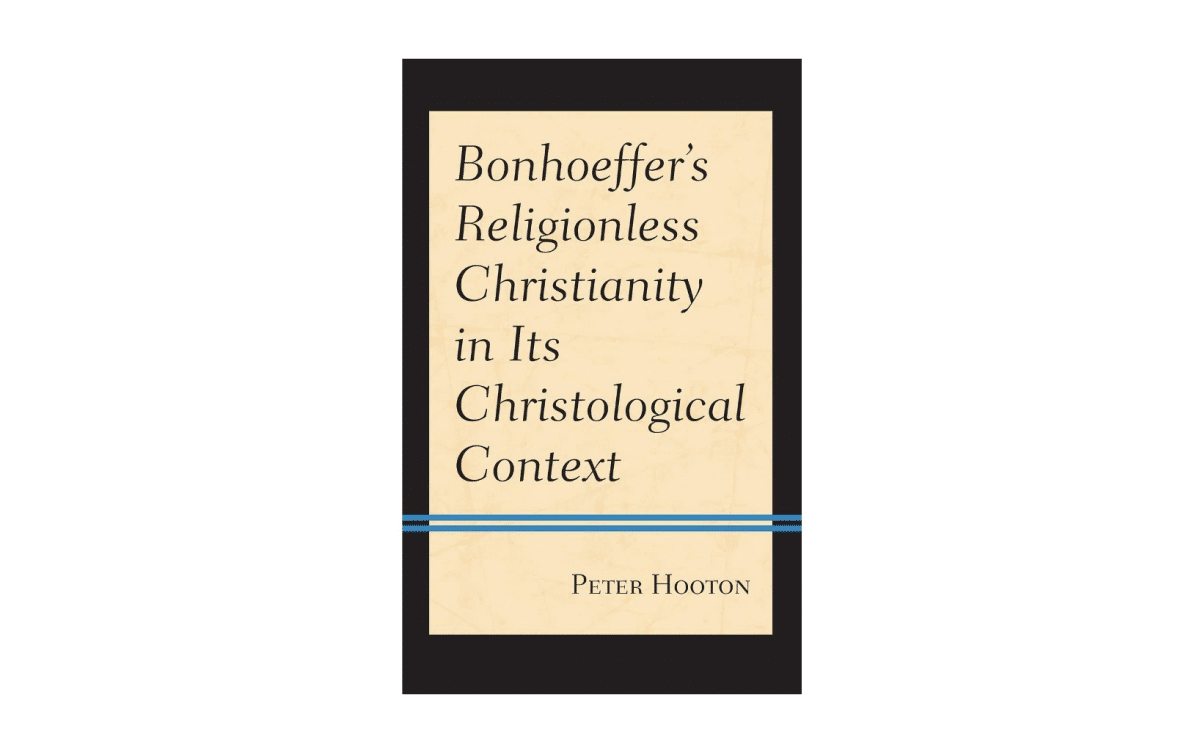
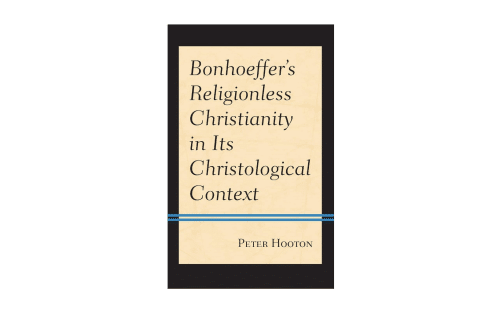
BONHOEFFER’S RELIGIONLESS CHRISTIANITY IN ITS CHRISTOLOGICAL CONTEXT. By Peter Hooton. Lanham, MD: Lexington Books/Fortress Academic (Rowman & Littlefield), 2022. 211 Pages.
Dietrich Bonhoeffer lives on as a martyr. His death came in April 1945 at the hands of the Nazis as World War II was nearing its close. He was only thirty-nine at the time of his death by hanging. His story has been told by several biographers, and his works have been made available for all to read in English translation. Despite his relative youth, he left behind a massive amount of material, both published and unpublished. As a result, Bonhoeffer has proven to be one of the most influential theologians of the past century and a half. This is true even though his theological understandings never reached a point of completion. Perhaps it’s that incompleteness that’s lent itself to the diversity of interpretations of work over the years, as well as its use by people from across the religious and even political spectrums. For example, Conservative evangelicals, some of whom are Christian Nationalists, have appealed to his efforts to resist the Nazis as fodder for their acts of resistance, especially when it comes to attempts to outlaw/discourage abortion. At the other end of the theological spectrum, in the 1960s the “Death of God” theologians found his prison letters and essays that hinted at a world without God attractive. Then there are the pacifists who have made use of his reflections on nonviolence. Some have simply tried to turn him into a conservative American evangelical (ala Eric Metaxas).

Robert D. Cornwall
Over the years my theology and practice have been deeply influenced by Bonhoeffer’s writings. I began reading his works (Cost of Discipleship) in college and continued to read them through seminary (I took Lewis Smedes’s “Ethics of Bonhoeffer” course) and beyond. I’ve read most of the biographies and several more specialized studies. I purchased the full set of the Dietrich Bonhoeffer Works and keep them close at hand so I can dip into them when needed, especially in sermon preparation (the scripture index in the index volume is very helpful!). I’ve always welcomed studies of his life and works that illuminate rather than obfuscate. That is true of two recent biographies by Ferdinand Schlingensiepen and Charles Marsh, which are especially good. Added to these studies is Peter Hooton’s Bonhoeffer’s Religionless Christianity in Its Christological Context. Hooton’s book is a specialized monograph, that focuses on one dimension of Bonhoeffer’s theological explorations. While it’s written for a scholarly audience, I found it to be very accessible.
As for the author of this book, Peter Hooton is involved in the area of public theology at the Australian Centre for Christianity and Culture on the Canberra campus of Charles Sturt University. Before this, he was a career diplomat working in Africa, the Middle East, Asia, and the South Pacific. He holds a Ph.D. from Charles Sturt University and is part of the university’s “Public and Contextual Theology Research Centre.”
Hooton’s book appears to be based on his Ph.D. dissertation at CSU. In it, he focuses on Bonhoeffer’s musings about religionless Christianity. This view of Christianity is especially present in Bonhoeffer’s Letters and Papers from Prison, as well as his Ethics. These works, all of which are to some degree incomplete, appeared at the end of his life. They suggest themes and possibilities of further exploration should he have survived the war. It was especially in his letters to his friend Eberhard Bethge, that an imprisoned Bonhoeffer delved into what the possibility of a religionless Christianity. Though when he wrote of a religionless Christianity, he wasn’t embracing atheism. Rather, he was envisioning what a non-institutionalized Christianity might look like. He was not, of course, alone in this, for Karl Barth was writing about Christianity apart from religion, which Barth believed was a human venture. For Bonhoeffer, this religionless Christianity would speak to a world come of age, that is a world that in a post-war world would have lost its innocence and naivete. Bonhoeffer’s vision of such a Christianity come of age, as the book’s title suggests, was deeply rooted in Bonhoeffer’s Christocentric vision.
Hooton points out that Bonhoeffer’s critique of religion was linked to Barth’s. His older contemporary suggested that religion is a human act of seeking God, which is a futile effort as God is wholly other. However, God is encountered as an act of Grace as God reaches out to humanity. Early in Bonhoeffer’s theological career, he placed greater weight on the church as the means of encountering God. We see this in works such as Sanctorum Communio, his initial doctoral dissertation. However, by the 1940s, he was contemplating what theology might look like in this new world order outside the realm of the church. Like Barth, Bonhoeffer never suggested that anyone should separate themselves from the church. However, he began to believe that the church isn’t the cure for what ails the world. While he resonated with Barth’s critique of religion, Bonhoeffer didn’t completely embrace Barth’s view. Bonhoeffer called Barth’s views a “positivism of revelation.” Nevertheless, he agreed with the larger critique of religion, and that critique was Christological in nature.
As I’ve noted Bonhoeffer’s vision was deeply Christological. For Bonhoeffer, God encounters us in Christ. While he didn’t reject his Lutheran theological foundations, he tended not to focus on the Trinity. Rather, in his view, the God who is for us will be encountered in Christ. Thus, his primary question concerned who Jesus is for us today. That leads to a question of who we are in relation to others. Interestingly he finds an anchor for his worldly Christianity in his reading of the Old Testament, which became increasingly this-world in orientation. As Hooton notes, Bonhoeffer’s theology was becoming progressively more inclusive as time passed. This more inclusive vision is first seen in his posthumously published Ethics. In this work, we see a movement in his thinking a move away from the powerful God of religion to a God of weakness who is revealed in Christ on the cross.
According to Hooton, as Bonhoeffer moves further into this nonreligious vision that is centered in Christ, he also begins to envision a nonreligious interpretation of the Bible. Bonhoeffer doesn’t abandon traditional biblical/theological terms like cross, sin, and grace, but he begins to look for other terms that are more expressive of the concerns of this new non-religious age. It’s not so much the words themselves as it is the way these concepts are understood. One of the concepts that he seeks to re-envision is repentance, which he speaks of in terms of ultimate honesty. For Bonhoeffer, “ultimate honesty” is ultimately a change of perspective about life and God, such that we join Jesus in being for others.
As he worked out the implications of his religionless Christianity, he rejected mysticism but not mystery. Hooton writes that “Bonhoeffer believes that the principal task of theology is to respect and to preserve God’s mystery. Perhaps nowhere is the significance of this task more evident, and more challenging, than in Christology, which rests on the assumption that God became human. That can’t be proved objectively” (p, 135).
So, how do we have Christ without religion? That is the question Bonhoeffer pondered in prison. Here he was, imprisoned for his role in the resistance facing possible execution. So, how does one manage life essentially without God? That is, without the powerful God of religion. Here he turns to the God revealed in Jesus, the God who is weak and powerless. With that, he proclaimed the church must recognize that the age of religion is over. As Hooton, notes, religion has continued on in ways Bonhoeffer might not have envisioned. Nevertheless, his critique of religion continues to push us.
Hooton reminds us throughout that Bonhoeffer’s theology is incomplete. He raised more questions than he provided answers. We don’t know where he would have taken things had he survived. While he had developed an “Outline of a Book,” which provides hints at the kinds of ideas he intended to develop further, that outline never became the hoped-for book because his life was cut short. So, Bonhoeffer is something of an enigma, offering us possibilities that never get fully developed. Yet those possibilities have lent themselves to others to develop. As for whether they’re faithful to Bonhoeffer’s vision is not always easy to tell. Nevertheless, Bonhoeffer continues to speak to our times.
We are fortunate today to have several helpful biographies along with that complete set of Bonhoeffer’s translated works. These works allow us to explore Bonhoeffer’s thinking about religion and a world come of age. Hooton’s Bonhoeffer’s Religionless Christianity in Its Christological Context offers another helpful guide to Bonhoeffer’s theological vision. As Hooton reminds us, Bonhoeffer doesn’t fit very well our standard categories of conservative or liberal. This has made it possible for people to appropriate his works for a variety of political causes, that have ranged from support of bombing clinics where abortions are performed to pacifism. As Hooton’s reading helps us understand is that Bonhoeffer ultimately provides fertile ground for others to explore what it means to be religionless and yet deeply rooted in Christology. The question then is whether Bonhoeffer’s argument for a religionless Christianity is compelling at this point in time. In answer to that question, Hooton writes that Bonhoeffer is “especially helpful here because he spares us the choice of two unsatisfactory alternatives: a choice between earth and heaven; the choice between a self-enclosed, entirely secular humanism and an ultimately unconvincing otherworldly transcendentalism” (p. 188).
What we have in Hooton’s Bonhoeffer’s Religionless Christianity in Its Christological Context is another helpful introduction to Bonhoeffer’s theology. In emphasizing the relationship of his understanding of religion to his Christology, Hooton helps us understand how Bonhoeffer can be helpful to our current conversations about the role of Christianity in a contemporary world that is increasingly polarized. We do this even as we are still left wondering where he might have taken things. That is, I suppose, as it should be. So, let us keep reading and pondering Bonhoeffer’s message in conversation with interpreters who seek to honor his legacy!
This review originally appeared on BobCornwall.com.
Robert D. Cornwall is an ordained minister in the Christian Church (Disciples of Christ). Now retired from his ministry at Central Woodward Christian Church (Disciples of Christ) of Troy, Michigan, he serves as Minister-at-Large in Troy. He holds a Ph.D. in Historical Theology from Fuller Theological Seminary and is the author of numerous books including his latest books: Called to Bless: Finding Hope by Reclaiming Our Spiritual Roots (Cascade Books, 2021) and Unfettered Spirit: Spiritual Gifts for the New Great Awakening, 2nd Edition, (Energion Publications, 2021). His blog Ponderings on a Faith Journey can be found at www.bobcornwall.com.

